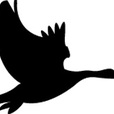
Summary: "Turning pro is not for everyone. We have to be a little crazy to do it, or even to want to. In many ways the passage chooses us; we don't choose it. We simply have no alternative." Turning Pro, page 5 Steven Pressfield knows more about suffering than I do. If you've ever tried to create something, you know what that means, but I'll spell it out for anyone who's confused. Everything worth doing is art. The obvious stuff - writing, painting, sculpting - is art, certainly. There's another kind of art though, and it exists in your business, in your life. If you're trying to do something with real meaning, something not quite orthodox, you have felt what traditional artists feel every day: Resistance. In Pressfield's earlier book, The War of Art, he detailed what Resistance is, and how to combat it. It was originally titled The Writer's Life so it's no surprise that it's slanted toward those who share Pressfield's profession. But as a man of broad vision, he knows that we all face Resistance, what Seth Godin calls the lizard brain. When we try to do something important, the voice in the back of our head tries to stop us. In many cases, it wins. Even those of us who've read and re-read The War of Art until it's worn have succumbed to Resistance. We needed more than awareness. We needed a tool, a path, a flashlight. Turning Pro is a flashlight on the path. Golden Egg There Are Two Paths: Amateur and Pro "[W]hat ails you and me has nothing to do with being sick or being wrong. What ails us is that we are living our lives as amateurs." Turning Pro, page 5 The core of Pressfield's message is that when we continually give in to Resistance, whether it's by avoiding our art, by embracing addictions of all kinds, or by working a "shadow career" where we do something close enough to pretend, but which is not our real art, we are still an amateur. He uses his own definitions of the words "amateur" and "professional" but he uses them in a sense any of us can understand. The distinction is not about the quality of our work or whether we get paid for it. It's about belief. Commitment. Integrity. Turning Pro is about deciding that it's time to put on your big boy pants and do the work. To sit down, day after day, 9 to 5, and type out the words, or hammer at the anvil, or whatever it is you have to do to create your art; your contribution to a better world. A pro creates habits to enable success in the daily battle against Resistance. A pro shows up in the morning, sits down, and gets busy. An amateur sleeps in, or gets up early but has other things to do before the work. A pro works. An amateur tweets. A pro's life isn't easier than an amateur’s. It's not harder, either. But it is, most definitely, different. GEM #1 Are You an Amateur or a Pro? "The difference between an amateur and a professional is in their habits." Turning Pro, page 20 An amateur is stopped by their fears, lives for the opinion of others, is easily distracted, seeks instant gratification, lacks self-compassion, seeks permission, and will be ready tomorrow. The pro shows up every day, acts in the face of fear, is dedicated to mastery, is not distracted, and does not wait for inspiration. You know whether you're an amateur or a pro. Thing is, others don't. They can't tell if you're doing a great job at a shadow career, or a mediocre job of something amazing. Nobody else can know about that glowing coal hidden in your gut. But you know. And you know which list you're on. If you're a pro, I salute you. If you're an amateur, shame on you for withholding your grace and art from a world that could sure use some of it. And lest anyone take offense at my shaming, it is, in fact, my shaming. I'm an amateur. Oh, I'm real good at a lotta things. But I know where I fall. I haven't turned pro. Not yet. I see it. I know it's out there, on the fringe of the woods. But I'm still huddled by the fire, building courage.
